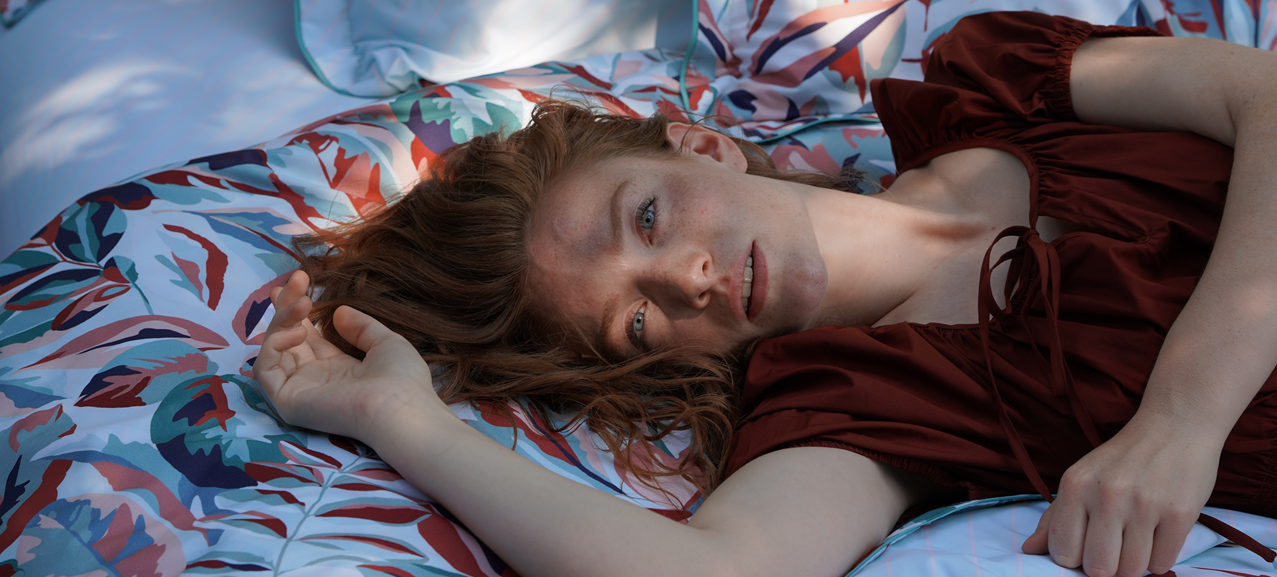Sleep is as unique as a fingerprint, with each person exhibiting distinct sleep patterns and preferences. Understanding the type of sleeper you are can enhance your comfort levels, helping in selecting luxury bedding , and ensuring a restorative night's rest.
What Are The Different Types of Sleepers?
The quality of your sleep can be directly affected by the kind of sleep environment and also your sleeping habits, which is why we explore the different kinds of sleepers with you.
The Early Bird Sleeper
This type of sleeper is often up at dawn or even before sunrise, feeling most energetic in the morning hours. Early birds tend to follow a consistent sleep schedule, going to bed early and rising early without an alarm. Characteristics typically include high productivity levels in the morning and early afternoon but dwindling energy as the day progresses.
Early birds tend to benefit significantly from creating an inviting bedtime routine and peaceful sleeping environment to avoid lying awake due to retiring too early. Incorporating soothing elements like soft pillows and calming colors in bedding may enhance their pre-sunset relaxation.
The Night Owl
Night owls find themselves more awake and productive during the evening hours, often staying up late into the night. This pattern can sometimes clash with standard societal schedules, which typically favor early starts. Night owls generally struggle with waking up early and may experience signs of sleep deprivation if required to consistently rise at dawn.
- Enhanced creativity in evening
- Difficulty engaging in typical morning activities
Catering to their unique needs, night owls could opt for darkening curtains and consider strategic lighting to foster a quasi-nocturnal environment conducive to delayed sleep onset.
The Weekend Catch-Upper
Weekend catch-uppers typically restrict their sleep during weekdays due to work or study commitments and binge on extra hours during the weekends. Although this might seem like a practical approach to repay sleep debt.
Those that fall within this sleeper type may be able to create consistency with a rigid sleep schedule and choose comfortable fabric in the form of pillow cases to improve sleep quality throughout the week and reduce the reliance on weekend sleep-ins.
The Restless Mind
A restless mind that keeps chugging along at bedtime can result in a type of insomnia. These sleepers tend to struggle to turn off their thoughts at night, leading to potential challenges in falling and staying asleep.
Implementing mindfulness techniques and leveraging gentle fabrics and relaxing fragrances can help. Incorporating specific products as well such as calming teas or essential oils might also ease the transition into sleep, aiding the restless mind to achieve better sleep hygiene.
Listening to Your Sleep Needs
Understanding your sleeper type is not just about identifying when and how long you sleep, but also involves tuning into what your body requires for optimal sleep. Are thicker blankets more comforting, or do crisp, cool sheets make you feel relaxed? As we tailor our sleep environments, considering personal habits and inclinations can profoundly affect our overall well-being.
Choosing the Right Products
Making informed decisions regarding bedding materials can greatly impact sleep quality. Natural fibers like linen and cotton promote breathability and comfort. While shopping, look out for eco-friendly practices and hypoallergenic properties in bedding items to ensure both luxury and health standards are met.
Finding the right mix of comfort and support in bedding accessories is crucial. Beyond choosing the perfect duvet covers, consider complementary components such as supportive mattresses and ergonomically designed pillows to complete your ideal sleep setup.
Personalizing Your Space
Your bedroom should be a sanctuary optimized for your sleep type. Consider atmospherics like light, noise, and temperature—each plays a significant role in crafting the right environment for your sleep style. Engaging scents, perhaps through aromatherapy or scented candles, can also create a conducive atmosphere for relaxation and restfulness.
Incorporating what we've learned about the many types of sleepers into our daily lives is essential for achieving optimal health and well-being. Whether you are a Night Owl staying up late or someone who loves the peace of your home in the early morning hours, recognizing and respecting your unique sleep needs is key.
People have diverse requirements when it comes to sleep, and there's no one-size-fits-all solution. From finding the best bedding that suits your style to creating a sleep sanctuary that invites rest and rejuvenation, every detail counts. By taking the time to understand and cater to our individual sleep patterns, we set the stage for a healthier, more energetic, and productive life.

